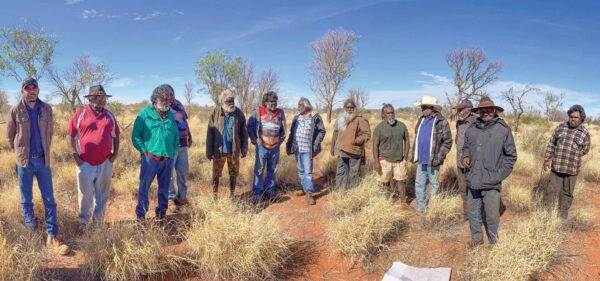An independent study of the Singleton Horticulture Project has found that it is dependent on a massive public subsidy, promised economic benefits that are overstated, and has significant ecological, cultural and social costs that have not been properly considered.
The report team, led by University of South Australia water economics professor Jeff Connor, analysed the business case put forward for Singleton by Fortune Agribusiness.

Fortune Agribusiness says Singleton will create 110 permanent and 1350 seasonal jobs, but the report finds it delivers little for the Northern Territory. The experts conclude Singleton is likely to generate only 26-36 fulltime equivalent jobs for Territorians, with just 5-8 of those jobs going to Aboriginal communities in the Barkly.
The report says a realistic estimate of economic benefit to Territorians was between $13 million and $28 million a year, rather than the $110 million claimed by Fortune Agribusiness.
By analysing prices paid for water on other Australian projects, the experts estimated the value of the free water subsidy being given to Fortune by the NT Government at between $70 million and $300 million plus.
Professor Connor said Singleton was one of a long line of irrigation proposals that promised more than they delivered.
“The Singleton water project is no exception,” he said. “It seeks the allocation of a large volume of water free of charge in return for employment benefits which are largely illusory, especially as regards the creation of full-time jobs for local indigenous workers.”
The Central Land Council-commissioned report was peer reviewed pro bono by Professor Quentin Grafton of the Australian National University who backed its conclusions.
Professor Grafton found the free water subsidy meant the NT is giving away “in the order of $250m” which “is not justified from either a public interest or a cost-benefit perspective”.
Releasing the report today, Central Land Council chief executive Les Turner said it poses serious questions about the project’s social, cultural and environmental costs.
“Not only has the project failed the economic benefits test, it has also neglected to account for the damage it would do to Aboriginal communities and country”.
Mr Turner said the CLC would continue to stand with traditional owners who oppose the government’s decision to give Fortune 40 gigalitres of finite ground water every year for 30 years.
“We are talking about emptying Sydney Harbour twice, about giving away water worth hundreds of millions of dollars.”
The report finds the NT Government’s lack of proper consultation with Aboriginal communities contradicts the Government’s own policies on Closing the Gap and the Everyone Together 2019-2029 Strategy, and the Government’s obligations under the National Water Initiative.
Review of the Singleton Horticulture Project Peer Review by Prof Q. Gratton
